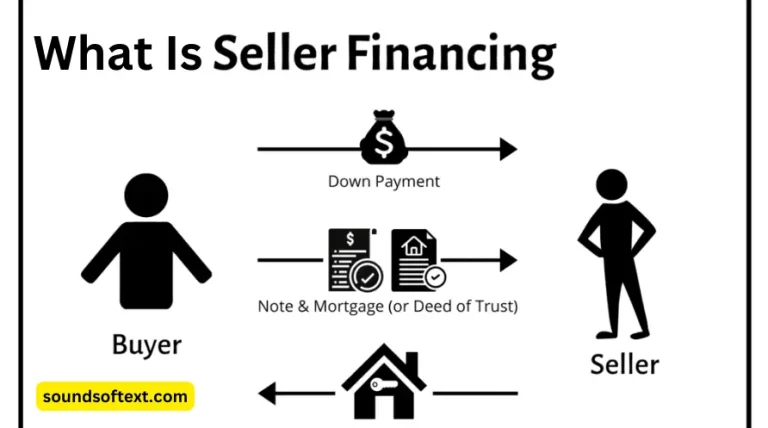What Is Equity Financing
Let’s suppose! you have a brilliant business idea, but you lack the funds to bring it to life. What do you do? Here a concept came i.e. Equity Financing. This guide is all about “What Is Equity Financing?”
Enter equity financing, a concept that could be your ticket to turning your dreams into reality. In simple terms, equity financing is when you raise capital for your business by selling ownership stakes, or shares, to investors. Unlike debt financing where you borrow money and repay it over time with interest, equity financing allows you to attract investors who become partial owners of your company.
This means they share in the risks and rewards of your business journey. While equity financing can provide a much-needed injection of cash without the burden of repayment obligations, it does come with its own set of pros and cons.
So buckle up as we delve into the world of equity financing, exploring its advantages and disadvantages, understanding the options available, and learning how to secure this type of funding for your venture.
Key Takeaways
- Equity financing allows businesses to raise capital by selling shares to investors.
- Investors who participate in equity financing become partial company owners and share in its profits.
- Equity financing provides an alternative option for businesses to raise capital without taking on additional debt.
- While equity financing can bring valuable expertise and industry connections, it may require business owners to relinquish some control over decision-making and share profits with investors.
Definition of Equity Financing
So, what Is Equity Financing? This is a method of raising capital by selling shares in a company, allowing investors to become partial owners and share in the profits. This type of funding involves attracting equity investors willing to provide financial resources in exchange for ownership stakes in the business.
Unlike debt financing, where borrowed money must be repaid with interest, equity financing does not require immediate repayment. Instead, equity investors take on the risk of their investment and expect to receive returns through dividends or by selling their shares at a later date. This approach allows businesses to access funds without additional debt and gives investors the potential for significant returns if the company performs well.
Overall, equity financing provides an alternative option for businesses seeking capital while offering potential benefits for investors looking to diversify their portfolios.
How Equity Financing Differs from Debt Financing
When you pursue equity financing, you give investors a stake in your business, allowing them to share the risks and rewards. Here’s how equity financing differs from debt financing:

Equity vs. Loans: With equity financing, you’re not required to repay the invested capital like a loan. Instead, investors become partial owners of your company and share in its profits.
Potential for Higher Returns: Unlike debt financing where interest rates are fixed, equity investors benefit from the growth and success of your business. If your company performs well, its investment can yield higher returns.
Strategic Support: Equity investors often bring more than just money to the table – they can provide valuable expertise, industry connections, and guidance as active partners in your business.
By understanding these differences, you can make an informed decision on whether equity financing is the right choice for your business needs.
Advantages of Equity Financing
One significant advantage of equity financing is the potential for investors to bring valuable expertise and industry connections to your business, enhancing its chances of success. When you choose equity financing, you’re inviting investors to become part owners of your company. These investors have a vested interest in seeing your business thrive and grow. They can offer guidance, advice, and support based on their own experience and knowledge in the industry.
Additionally, they may have valuable connections that can open doors for your business, such as partnerships with other companies or access to critical resources. However, it’s essential to consider the potential downsides of equity financing, such as losing some control over decision-making and having to share profits with investors. It’s essential to carefully weigh the benefits and drawbacks before deciding.
Disadvantages of Equity Financing
A potential drawback of equity financing is losing control and the need to share profits with investors. When you choose equity financing, you sell a portion of your company to investors in exchange for capital.
While this can provide much-needed funds for your business, it also means that you’ll have to answer to shareholders and make decisions based on their interests. Additionally, sharing profits with investors can significantly impact your bottom line. Furthermore, the cost of equity financing can be high due to factors such as dividends or stock options given to investors. This can make it more expensive in the long run compared to other forms of financing like debt or loans where interest rates are fixed.
Therefore, it’s essential to carefully consider these disadvantages before deciding if equity financing is right for your business.
Understanding Equity Financing Options
To fully grasp the various options available for funding your business, it’s essential that you understand the different avenues through which capital can be raised. When it comes to equity financing, there are several alternatives to consider. The first option is angel investors, who are typically high-net-worth individuals looking to invest their personal funds in promising startups.
Another alternative is venture capitalists, who fund early-stage companies with high growth potential. Private equity firms are also an option, as they invest in established businesses to generate significant returns. Additionally, crowdfunding platforms have gained popularity as a way to raise equity financing from many individual investors.
It’s essential to assess your specific needs and goals when considering these types of equity investors and choose the option that aligns best with your business objectives.
Steps to Secure Equity Financing
Securing equity financing is like embarking on a wild rollercoaster ride, where you must navigate through countless pitch meetings and financial scrutiny to woo potential investors. It can be a daunting process, but with the proper steps, you can increase your chances of success.

Here are three key steps to secure equity financing:
Prepare a comprehensive business plan: Investors want to see that you have a solid plan for how their money will be used and how it will generate returns. A well-prepared business plan demonstrates your commitment and professionalism.
Identify potential investors: Research and identify potential investors who align with your industry or have shown interest in similar businesses. Building relationships with these investors can significantly increase your chances of securing funding.
Present a compelling pitch: Craft a compelling pitch presentation that communicates the value proposition of your business. Highlight the market opportunity, competitive advantage, and growth potential. Practice delivering your pitch confidently and concisely.
By following these steps, you’ll be better equipped to secure equity financing for your business venture.
Related Articles:
Considerations and Implications for Business Owners
Navigating the considerations and implications of securing financing can be a thrilling adventure for business owners, filled with opportunities for growth and potential success. When considering equity financing, it’s crucial for business owners to carefully evaluate the implications it may have on their company’s growth trajectory.
Equity financing involves selling shares of ownership in the business to investors in exchange for funding. This can provide a significant injection of capital to fuel expansion plans or pursue new opportunities. However, it also means sharing decision-making power and profits with investors, which could affect the overall control and direction of the business.
Building strong investor relations becomes paramount as effective communication and transparency are essential to maintain trust and support from stakeholders. Business owners must weigh the potential benefits against the loss of autonomy before committing to equity financing as a strategy for business growth.
Frequently Asked Questions
Concluding “What Is Equity Financing”
Equity financing can be a valuable tool for business owners looking to secure funding for their ventures. By offering ownership stakes in exchange for capital, this method provides opportunities for growth and expansion. However, it’s essential to carefully consider the advantages and disadvantages before pursuing this option.
Remember that equity financing differs from debt financing and requires careful planning and considering the implications. So, whether you’re seeking investors or considering offering equity, remember that knowledge is power in navigating the world of business finance.






